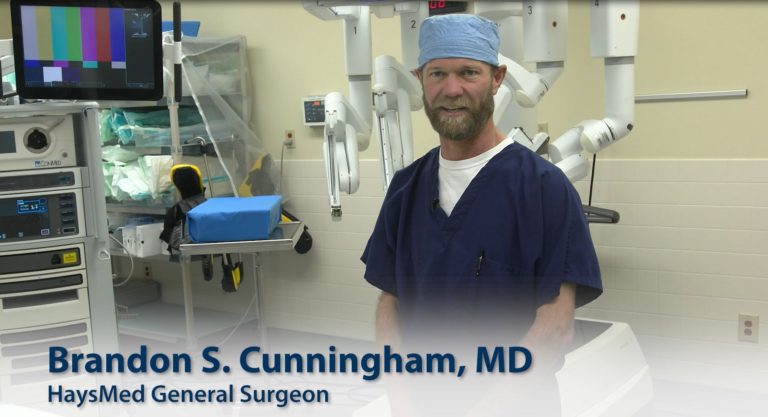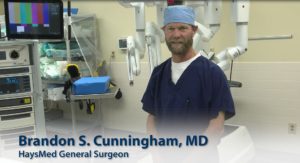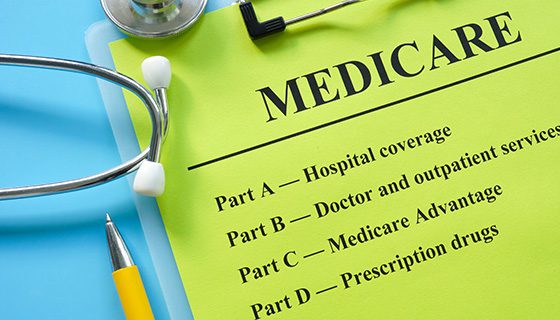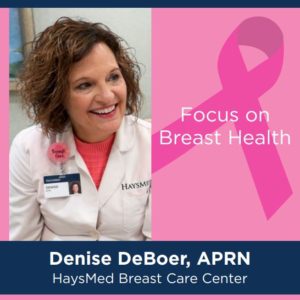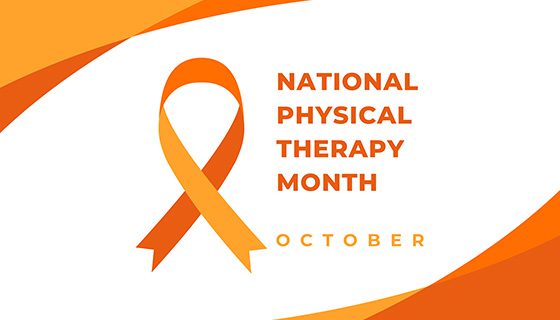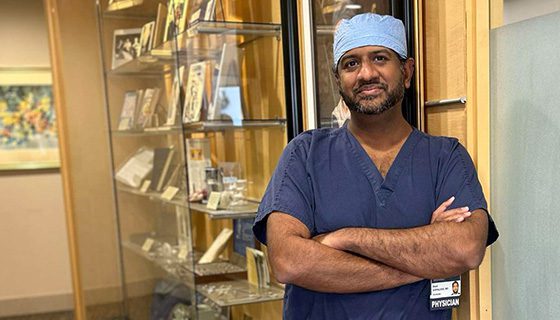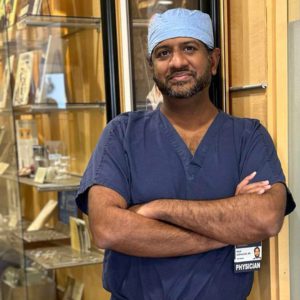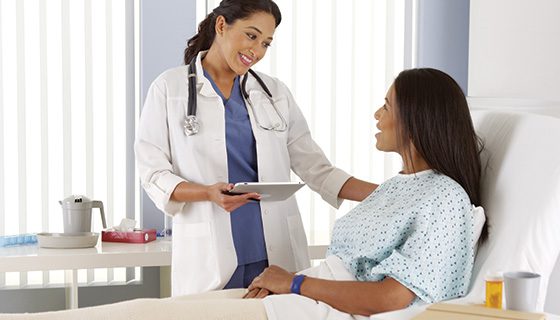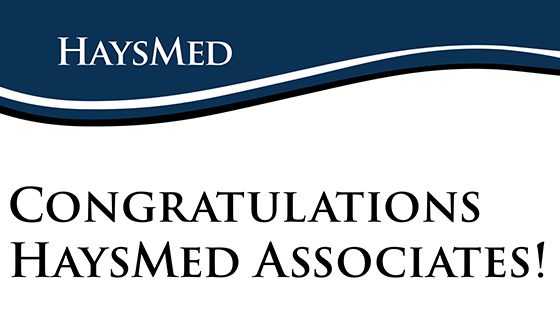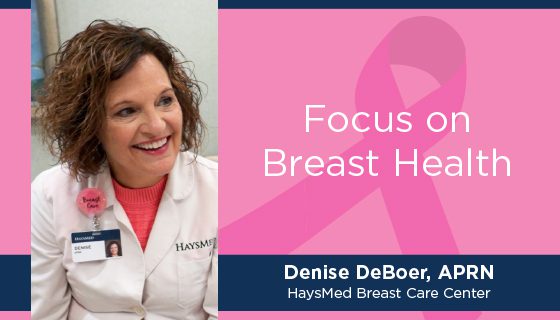At HaysMed, our Breast Care Center team is committed to excellence at every step of your personalized patient experience. To find out what all women should know about breast health, we sat down with Denise R. DeBoer, an advanced practice registered nurse (APRN) with 20+ years of experience in healthcare. Denise specializes in comprehensive breast care at HaysMed, including evaluations, screenings and guidance for patients at high risk of breast cancer.
Denise, what do you like best about your work?
What I find most rewarding is helping women be in a better position to protect themselves from breast cancer. Being in a high-risk center, we do assessments to determine an individual’s risk. And if they are high risk, then the whole idea is to screen those patients more often, maybe at a six-month interval versus a year. Then, if something changes, we’ll be able to catch it at an early stage when treatment will typically be minimal.
What are the general recommendations for women when it comes to breast care and screenings?
“Self” breast awareness is important – just becoming familiar with their breast tissue enough that they know what their normal tissue feels like, so if something changes, they’re going to be able to pick that up. Together with annual mammograms for women over 40, those are the two things that will help. We can find things on imaging long before we ever feel something palpable. We can find small lesions, millimeters in size. So, screenings are very important.
Tell us about the breast cancer prevention program at HaysMed.
We are a dedicated breast center, and one of our focuses is high-risk patients. The mammogram report or a provider’s referral can help to identify individuals who may be at higher risk, and they are given a detailed risk assessment when they come in. We then set up a treatment plan with recommendations as to how often they should be seen and what types of screenings are best suited for them. Sometimes we’ll see patients every six months, as I mentioned, and/or we may set them up with added imaging. For example, when a patient is determined to be 20 percent or higher on lifetime risk, we recommend a breast MRI. The advantage of a breast MRI is just that it will see through breast density – a little more detailed than what a mammogram can.
With high-risk patients, we also may have discussions about possible preventive measures, such as certain medications and/or behavioral and lifestyle changes that can help to actually prevent breast cancer, not just detect it or treat it.
Because standard recommendations are for mammograms to start at age 40, many younger women might not realize breast cancer risk is something to pay attention to until then. What would you say to those younger women?
For younger women, it’s important to know their risk now. It’s true that women at average risk will begin doing regular mammograms at age 40, but if there is a family history, we often will start screening earlier than that age. It also depends on the age of diagnosis of their family members. We take a ten-year window of time and move up from whenever that youngest family member was diagnosed.
Beyond family history, what other risk factors should women be aware of?
The Tyrer-Cuzick Risk Assessment is an international standardized scale that most breast centers use to estimate an individual woman’s breast cancer risk. It factors weight, age, breast density, family history, age at first menstrual cycle, when they had their first child, whether they’ve ever had a biopsy before, and more. All that information combines to gives us a risk percentage.
What other types of care and services do you provide at HaysMed?
At the HaysMed Breast Care Center, you receive comprehensive care. From risk assessments and screenings to diagnosis, consultations and treatment, everything you need is on site. Dr. Brandon Cunningham, general surgeon, is the Breast Care Center Medical Director. Dr. Cunningham, along with Dr. Paul Teget, general surgeon, conduct clinic hours for our patients in our high-risk program. Additionally, surgical consults are available for those with a breast cancer diagnosis, coordinated with the HaysMed Southwind Surgical office.
An additional advantage we have is a radiologist on site reading images to provide rapid diagnostics and can even consult with the patient. We also do biopsies right here. If we see a patient in the clinic and they’re diagnosed with breast cancer, we have a nurse navigator to facilitate the process and be a liaison for that patient and their family – a resource who helps set them up with all the appointments. Once those appointments are set up, the patient may see the medical oncologist or surgeon that same day. It’s really a dedicated, expert team that works together seamlessly and quickly to ensure our patients receive the breast care they need, when and where they need it.
For more information…
From mammograms, MRIs and other diagnostic screening services to prevention, risk assessment, genetic testing, clinical trials, treatment, and survivorship, our Breast Care Center at HaysMed provides the comprehensive breast care you need. We offer specialized patient navigation to guide you through each step of the process.
Whether you require the services of a surgeon, oncologist, radiation oncologist and/or reconstructive surgeon, we work seamlessly with HaysMed specialists in:
General Surgery
Dreiling-Schmidt Cancer Institute
Radiation Oncology
The HaysMed Breast Care Center is located at 2220 Canterbury Drive, Main Entrance C, Hays, KS 67601. Hours of operation are Monday through Friday, 8:00 a.m. to 5:00 p.m.
Call 785-623-5114 for appointments and assistance.

